Mozambique: 825 people died in road accidents from January to May
Reinforcements requested in northern Mozambique a month after attacks
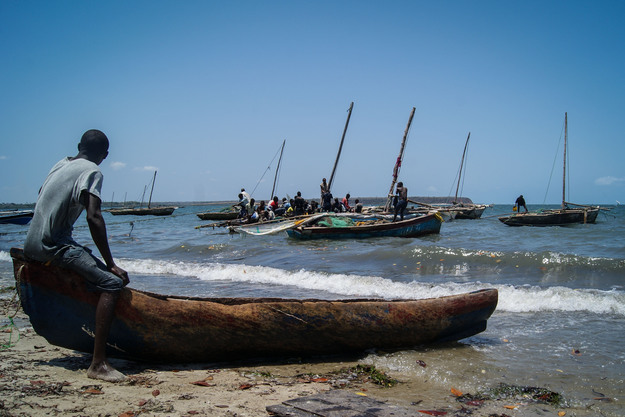
A month has passed since the confrontations, but it could take years before reinforcements leave Mocímboa da Praia, the Muslim leader who believes he was the prime target of the list of the armed group that attacked the village has told Lusa.
“It is necessary that the government apply every effort to prevent this from happening again” and it is not enough for reinforcements to stay for “one day, nor two months: it must be years” of presence on the part of various authorities and institutions, Amade Suleimane Juma says.
Mocímboa was besieged for two days on October 5 and 6. Two policemen were killed and four other authority figures in an ambush the following week, while more than 20 radical Islamist attackers, some of whom were from the village, were reported killed.
A scenario never before witnessed in peace time.
The defence and security forces barracks has to have personnel and resources to reassure the population, which says there are still malefactors on the loose in the surrounding bush, Juma says.
To this day, everything that the bush hides remains unknown, in a land rich in rubies and natural gas, but the reinforcements became visible with soldiers and vehicles in the weeks following the first attack and the government has promised to keep them there. Indeed, President Nyusi has asked the new military leaders sworn in on Monday to make sure to prevent attacks on sovereignty.
What is this armed group? Dozens of men who said they wanted to attack police, not residents, in a threat that was already growing within the population for at least two years, several sources told Lusa.
“I was the first one [who was going to] be killed,” Amade believes. “They knocked on my door before starting the attack, not because I was a policeman, but because I denounced them on [community] radio and advised the people not to accept” the radical Islamic doctrine that the group was spreading from a mosque in the Nanduadue neighbourhood.
Amade’s believes the target on his back reflects local crises and tension.
The gunmen only took to the streets at dawn on October 5, but in the mostly Muslim village there were differences that had to do with the group’s intention to impose Islamic sharia law, in which no one follows the authority of the state, whether in the schools or courts, and under which even the statue of Samora Machel and the Mozambican flag were anathema.
They meddled in social life, “seized the daughters [of families] and then held marriages without their parents’ permission,” says Amade.
People were already afraid to pass near the mosque, but no one expelled them, “because the base of the protagonists are natives, they are our children, our brothers, relatives, our neighbours and they used the Muslim religion as a cover. Automatically, that made our strength a little smaller,” Tuaha Hassane, another Islamic leader in the village, said.
Felisberto Morais remembers how the Mocímboa ‘Al-Shabaab’ group, as he calls it, although it has no connection to the Somalia terrorist organisation, was “the subject of regular Muslim meetings over the last two years”.
The leaders warned “against a sect,” like “a snake that was being born. It has grown and now it is biting us,” he adds.
“They are young people without motivation, and someone tried to encourage them. I think this is very simple: anyone who has a job will not participate in this situation,” he says.
The armed insurrection had at its base a mass of local youths radicalised by supposed foreign Islamist mentors who have taken advantage of the porosity of land and sea borders.
Mocímboa beach is the place of arrival and departure of dozens of sailing boats, where any person or merchandise can transit without control in the confusion of the fish market.
Tuhaha Hassane remembers the “strange” case of a young man from the Pamunda neighbourhood who travelled to Somalia, was pronounced dead, then reappeared in the village and left again without anyone investigating “what was he doing”.
In another case, Tanzanian Islamic mentors conducted meetings in mosques and disappeared when it became apparent that they were in the country illegally.
The presence of teachers instigating insurgency was reported in several mosques in Cabo Delgado and Mocímboa da Praia district administrator Rodrigo Puruque associates it with the passage of refugees from countries in the north such as Somalia and Ethiopia between 2010 and 2011, some of whom stayed.
Puruque urged people to stop sending their children to Quranic schools abroad because of reports of young people returning with a radical view of Islam.
He also called for the end of the integral burqa while a new census, which should be completed by the end of the year, was launched in order to better understand various parameters such as who goes to the official school, Mayor Fernando Neves explained
“We are not forbidding our sons attending the teaching madrassa,” the mayor said. “You can do it, but you also have time to go and learn science. Science causes us to grow and develop,” and it will always be harder for someone to “coerce” an enlightened mind, he concludes.
Juma thinks that “many children and many young people have been caught because of their ignorance” and Saide Bacar, an Islamic leader in Montepuez, says that there are ringleaders who “are taking advantage” of those who “have not studied, and are poor and hungry”.
At the last police press conference on the subject, spokesman Inácio Dina only said that there have been no new attacks, contradicting a stream of stories on social media.
If there were references to clashes, he said, they must relate to the surgical persecution of some of the aggressors, based on tip-offs from residents of villages in the bush.
Arrests have not stopped, authorities say, and the number of people questioned by the Cabo Delgado Prosecutor’s Office has already risen to 107, of whom 50 have had their imprisonment confirmed, according to a source quoted by state media.
Mocímboa da Praia is on the edge of the Indian Ocean in a traditionally Islamic region of great natural wealth, some of which is already being explored – like the largest deposits of rubies in the world, extracted by concessionaires and illegal miners alike. Natural gas reserves there will give rise to megaproject investments in the next five years, one led by Italian oil company Eni, and another by US-based Anadarko.
During the October clashes, personnel linked to natural resource projects were removed from the area by helicopter as a precautionary measure, while the consulting firms and risk analysis experts that inevitably accompany large capitals movement speculated on what was happening.
Time will tell if something is still hidden in the forests of Cabo Delgado, and if it will again be possible to sleep peacefully in Mocímboa da Praia.



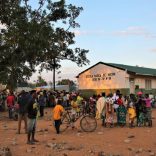
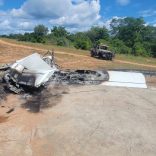

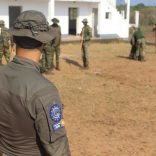
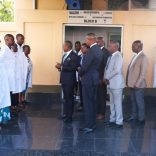





Leave a Reply
Be the First to Comment!
You must be logged in to post a comment.
You must be logged in to post a comment.